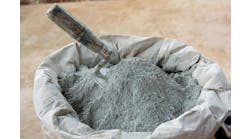ANN ARBOR, Mich. – NSF International, a public health and safety organization, announced today that Calgon Carbon Corporation's plant in Blue Lake, Calif., is the first to receive NSF certification for reactivated carbon used for water treatment. NSF certification to NSF/ANSI Standard 61: Drinking Water System Components - Health Effects verifies that the reactivated carbon is safe for reuse in municipal water treatment applications, such as those used to treat river, lake or well water, making it potable for humans. Municipal water treatment plants use activated carbon (media) to reduce organic compounds and contaminants in drinking water, and this carbon media needs to be periodically replaced. Rather than disposing spent media in a landfill, the media can be reactivated, which removes contaminants and enables it to be reused by municipal water treatment facilities. Certification to NSF/ANSI 61 ensures the reactivated media reused by municipal water treatment plants meet national requirements for health and safety. NSF/ANSI Standard 61: Drinking Water System Components - Health Effects outlines requirements for regenerated/reactivated water treatment media, including inspections of regeneration facilities as well as periodic testing of regenerated media by an accredited certifying organization. NSF/ANSI 61 also requires that the regeneration/reactivation facilities have a robust quality system, ongoing evaluations of contaminants in the raw source water, and an evaluation of the regeneration process to verify removal of these contaminants. Reactivation is a high-temperature thermal process, whereby spent water filtration media can be safely and cost-effectively treated and reused. During the reactivation process, absorbed organic compounds and contaminants are destroyed, and the reactivated carbon’s filtration capacity is restored. Reactivation also is better for the environment, significantly reducing the CO2 footprint associated with the production, supply and use of virgin activated carbon. To obtain certification from NSF International, Calgon Carbon completed a rigorous process that included submission of product samples, formulation reviews, data collection, testing and monitoring. NSF will periodically audit Calgon's facility and test samples to ensure ongoing compliance.
Latest from Industry News
Latest from Industry News



